《CONSTITUTIONAL LAW AND PRACTICE IN THE INTERNATIONAL LABOUR ORGANISATION》
| 作者 | 编者 |
|---|---|
| 出版 | MARTINUS NIJHOFF PUBLISHERS |
| 参考页数 | 266 |
| 出版时间 | 1985(求助前请核对) 目录预览 |
| ISBN号 | 9024729858 — 求助条款 |
| PDF编号 | 812895108(仅供预览,未存储实际文件) |
| 求助格式 | 扫描PDF(若分多册发行,每次仅能受理1册) |
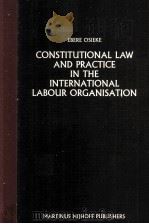
Chapter Ⅰ:General Introduction1
1.Purpose and scope1
2.Historical background3
3.The legal character of the ILO5
4.The concept of implied powers of international organisations8
5.The political character of the ILO9
(a)The political groups10
(b) The regional groups11
(c) The representative groups12
Chapter Ⅱ:Membership in the ILO15
1.Introduction15
2.Acquisition of membership in the ILO16
(a)Acquisition of membership of the ILO by members of the United Nations16
(b) Acquisition of membership of the ILO by non-members of the United Nations18
(c)Legal problems concerning admission to membership in the ILO19
(i) Acceptance of the obligations of membership19
(ii) The concept of "state" for purposes of membership in the ILO22
(iii) Nature of obligations of membership in the ILO25
(iv) Admission to membership as evidence of collective recognition of the entity as "state"26
(v) The relevance of political considerations on admission to membership in international organisations28
3.Withdrawal from membership30
(a)Withdrawal of South Africa from the ILO31
(i) Effective date of the withdrawal of South Africa from the ILO33
(ii) Liability of South Africa to discharge its constitutional obligations after "notice" of withdrawal34
(b) Withdrawal of the United States of America from the ILO35
4.Re-admission of withdrawn members in the ILO38
5.Inactive members of the ILO39
6.Suspension and expulsion from membership in the ILO40
(a)Suspension and expulsion in the absence of express constitutional provisions42
(b) The compatibility of expulsion with the concept of "universality" and the objects and purposes of international organisations46
7.Conclusion47
Chapter Ⅲ:Representation in the ILO49
1.Introduction49
2.The concept of "universality" in the ILO50
3.The principle of tripartism in the ILO52
4.Credentials of delegates and advisers55
(a)Receivability of objections55
(b) Objections to the credentials of the workers delegation of Chile,1978:receivability57
(c)The substance of objections to credentials59
(i)Invalidation of credentials of government delegates and advisers61
Objections to the credentials of the government delegate of Hungary,1957-5862
(ii)Invalidation of the credentials of non-government delegates and advisers65
Objections to the nomination of the employers'delegates and advisers of the USSR,Bulgaria Byelorussia SSR,Czechoslovakia,Hungary,Poland,and Ukrainian SSR,195466
5.Observers at the International Labour Organisation68
(a)Non-member states68
(b)Non-governmental international organisations69
(i) Non-governmental organisations with consultative status with the ILO69
(ii) Non-governmental organisations without consultative status72
(c) Governmental international organisations73
(d) National liberation movements74
6.Conclusion77
Chapter Ⅳ:The structure of the ILO79
1.Introduction79
2.The International Labour Conference81
(a)Functions and powers of the International Labour Conference81
(b) Composition of the International Labour Conference81
(c)Meetings of the Conference82
(i) Periodicity of meetings of the Conference82
(ii) The agenda for the meetings of the Conference83
(iii) The officers of the International Labour Conference84
(iv) The quorum rule of the International Labour Conference85
(v)Proceedings at the Conference89
The power of the president to accord or withdraw the right to speak90
Freedom of speech,use of parliamentary language,and the immunities accorded to delegates,during the proceedings of the Conference91
(vi) Committees of the International Labour Conference93
(d)Voting at the plenary sitting of the Conference94
(i)Voting at the plenary sitting of the Conference95
Record votes at the Conference95
Secret ballot votes at the Conference98
(ii) Voting in committees of the International Labour Conference100
3.The structure of the Governing Body102
(a)Functions and powers of the Governing Body102
(b)Composition of the Governing Body103
(i)Government members of the Governing Body103
Selection of the members of chief industrial importance-non-elective members103
Government members of the Governing Body selected through elections107
(ii) Election of the non-government members of the Governing Body108
(iii) Deputy and substitute members of the Governing Body109
(c)Proceedings of the Governing Body110
(i) Term of office of the Governing Body110
(ii) Meetings of the Governing Body110
(iii) Agenda for the meetings of the Governing Body111
(iv) The Officers of the Governing Body111
(v) The Quorum for the Governing Body Meetings113
(vi) Committees of the Governing Body114
(d) Voting in the Governing Body of the International Labour Office114
4.The Director-General of the ILO116
(a)The functions of the Director-General of the ILO116
(b) Appointment and removal of the Director-General of the ILO116
(c) The legal status of the Director-General120
5.The International Labour Office122
6.The regional structure of the ILO123
7.Special problems of structure in the ILO124
(a)The relationship between the Governing Body and the International Labour Conference127
(b) The composition of the Government Group in the Governing Body129
(c) The composition of the non-government groups in the Governing Body132
(d) Amendments to the ILO Constitution136
(e) Resolutions procedure138
8.Conclusion141
Chapter Ⅴ:The exercise of the legislative FUNCTION IN THE ILO143
1.Introduction143
2.The nature and characteristics of international labour standards145
(a)The necessity for international labour standards145
(b) The nature of international labour standards adopted by the ILO146
(c) Flexibility of Conventions147
3.Procedure for the adoption of Conventions148
(a)Double-discussion procedure150
(b) Single-discussion procedure151
4.Ratification,entry into force,reservations and declarations,denunciations,and revision of Conventions152
(a)Ratification of Conventions152
(b) Entry into force of Conventions154
(c) Reservations and Declarations154
(d) Denunciations156
(e) Revision of Conventions157
5.Obligations arising from International Labour Conventions158
(a)Obligations of members of the ILO with respect to unratified Conventions158
(i) Submission of a Convention to the "compentent" authorities158
(ii) Reports on unratified Conventions160
(b)Obligations of members of the ILO with respect to ratified Conventions161
(i) Obligation of members of the ILO to give effect to ratified Conventions161
(ii) Obligation to submit reports on ratified Conventions164
6.Conclusion165
Chapter Ⅵ:The exercise of the executive function in the ILO169
1.Introduction169
2.Initiation and formulation of policies in the ILO169
(a)The initiation and formulation of the World Employment Programme in the ILO171
3.Implementation of International Labour Conventions(and recommendations) adopted by the ILO171
(a)Action against a member for failure to bring an International Labour Convention or recommendation before the competent national authority172
(b) The committee of experts on the application of Conventions and recommendations173
(c)Conference committee on the application of Conventions175
(i) Problem of the "special list" of the Conference committee175
(d)Special procedures on freedom of association177
(i) The Governing Body committee on freedom of association178
(ii) The Fact-Finding and conciliation committee on freedom of association179
(e) Contentious proceedings182
(f) Other measures182
4.Implementation of judicial decisions183
(a)Decisions concerning the interpretation of the ILO Constitution and International Labour Conventions183
(b) Decisions of a commission of inquiry or the International Court of Justice on complaints made against Member States185
5.Implementation of resolutions adopted by the International Labour Conference186
(a)Resolution concerning or regulating the internal administration,structure and procedures of the ILO187
(b) Resolutions addressed directly to Member States188
(c)Nature of action taken to implement resolutions of the Conference189
(i) Resolution concerning migrant workers,adopted by the Conference at its 64th Session,1979189
(ii) Implementation of the resolution concerning the situation of Arab workers in the occupied Arab territories,1974190
(d) Supervision of the implementation of resolutions of the International Conference193
6.Conclusion194
Chapter Ⅶ:The exercise of the judicial function in the International Labour Organisation197
1.Introduction197
2.The interpretation of the ILO Constitution198
3.Interpretation of International Labour Conventions204
(a)Interpretation of Conventions by the International Court of Justice204
(b) Interpretation of Conventions by tribunals206
(c) Interpretation of Conventions by the International Labour Office206
4.Settlement of disputes in the ILO210
(a)Representations against Members of the ILO210
(i) Receivability of representations212
(ii) Reference of representations to a committee212
(iii)Consideration of representations by the Governing Body213
Representation against governments of the EEC Countries,Members of the ILO,1976215
Representation against Czechoslovakia,1977217
Representation against Nicaragua,1981219
(b)Complaints against Members of the ILO221
(i) Initiation of complaints221
(ii)Determination of complaints225
Appointment of a commission of inquiry226
Composition of a commission of inquiry227
Procedure of a commission of inquiry228
Jurisdiction of a commission of inquiry229
Development of law and precedent231
Binding effect of recommendations of a commission of inquiry233
Appeals against recommendations of a commission of inquiry234
5.Conclusion234
Chapter Ⅷ:General conclusions237
Bibliography243
Index259
1985《CONSTITUTIONAL LAW AND PRACTICE IN THE INTERNATIONAL LABOUR ORGANISATION》由于是年代较久的资料都绝版了,几乎不可能购买到实物。如果大家为了学习确实需要,可向博主求助其电子版PDF文件(由 1985 MARTINUS NIJHOFF PUBLISHERS 出版的版本) 。对合法合规的求助,我会当即受理并将下载地址发送给你。
高度相关资料
-
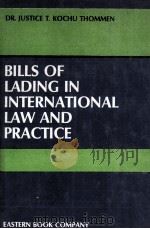
- BILLS OF LADING IN INTERNATIONAL LAW AND PRACTICE
- 1977 EASTERN BOOK COMPANY
-
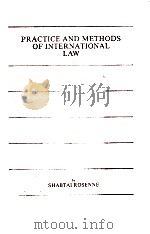
- PRACTICE AND METHODS OF INTERNATIONAL LAW
- 1984 OCEANA PUBLICATIONS
-

- TRIPARTISM AND THE INTERNATIONAL LABOUR ORGANISATION
- 1982 ALMQVIST AND WIKSELL INTERNATIONAL
-
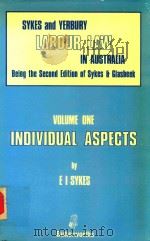
- Labour law in Australia
- 1980 Butterworths
-
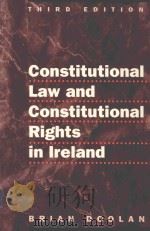
- Constitutional law and constitutional rights in Ireland
- 1987 Gill & Macmillan
-
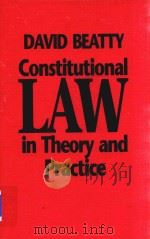
- Constitutional Law in Theory and Practice
- 1995 University of Toronto Press
-
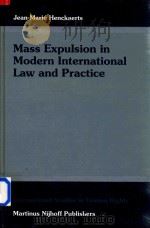
- Mass Expulsion in Modern International Law and Practice
- 1995 Martinus Nijhoff Publishers
-

- International Law Teaching and Practice
- 1982 Stevens & Sons
-
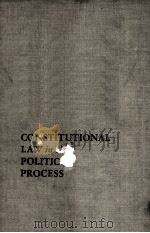
- CONSTITUTIONAL LAW IN THE POLITICAL PROCESS
- 1963 RAND MCNALLY & COMPANY
-
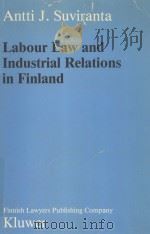
- LABOUR LAW AND INDUSTRIAL RELATIONS IN FINLAND
- 1987 FINNISH LAWYERS PUBLISHING COMPANY
-
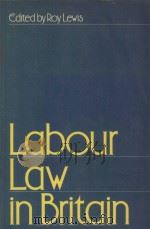
- LABOUR LAW IN BRITAIN
- 1986 BASIL BLACKWELL
-
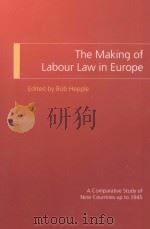
- THE MAKING OF LABOUR LAW IN EUROPE
- 1986 MANSELL PUBLISHING LIMITED
-
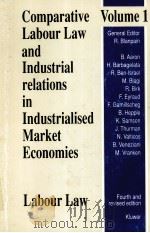
- COMPARATIVE LABOUR LAW AND INDUSTRIAL RELATIONS IN INDUSTRIALISEED MARKET ECONOMIES LABOUR LAW VOL
- 1990 KLUWER LAW AND TAXATION PUBLISHERS
-
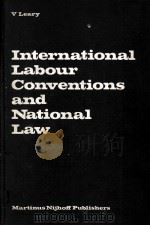
- INTERNATIONAL LABOUR CONVENTIONS AND NATIONAL LAW
- 1982 MARTINUS NIJHOFF PUBLISHERS
-
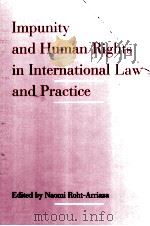
- Impunity and human rights in international law and practice
- 1995 Oxford University Press
提示:百度云已更名为百度网盘(百度盘),天翼云盘、微盘下载地址……暂未提供。➥ PDF文字可复制化或转WORD